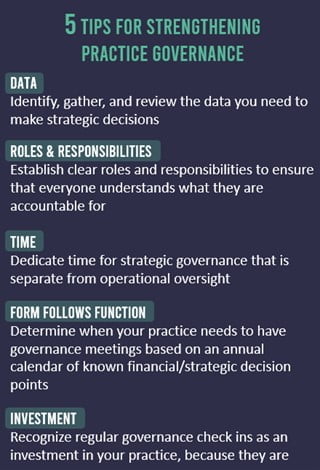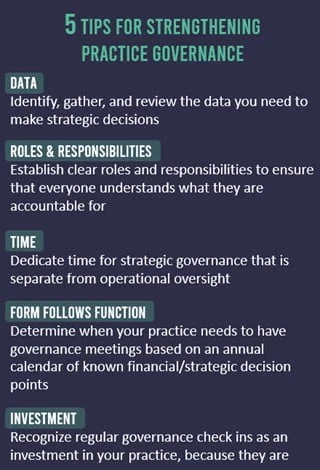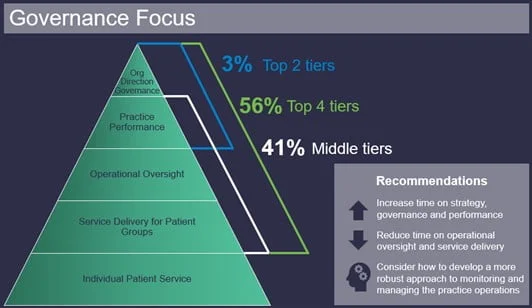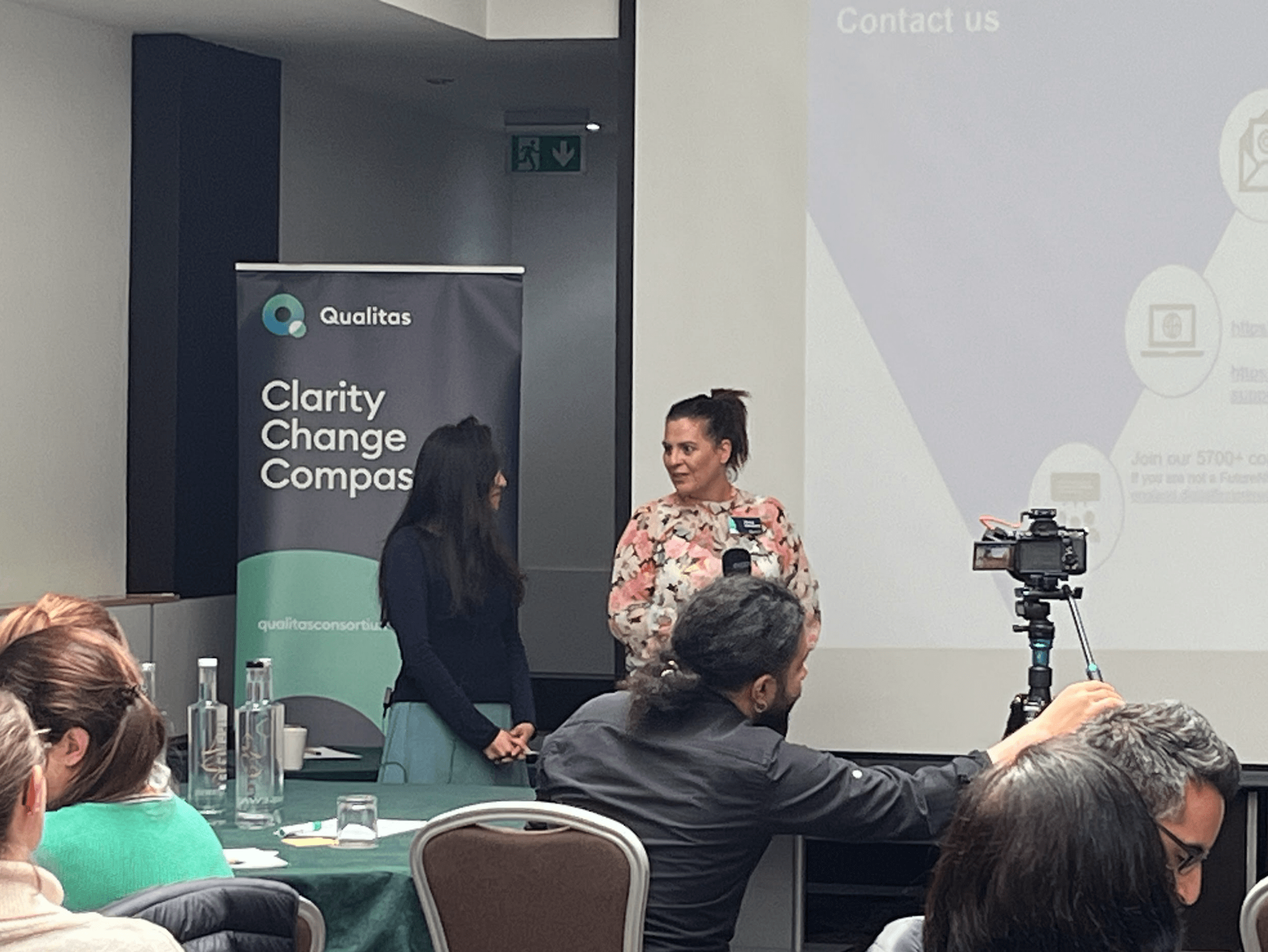Good governance habits that can help your practice achieve its strategic vision

Many practices are seeking to develop the governance habits needed to effectively deliver on their strategic vision and operational priorities. Organisational development can take time but implementing a few key changes to how your partnership and practice approach governance can yield both short– and long-term benefits and can actually take less time overall for your partnership.
Through the Pathway to Partnership programme, Qualitas works with partners to develop the effective governance and infrastructure needed to achieve their strategic goals. Key to this is making governance efficient too – Partner time is pressured and precious. Through this work, we have surveyed more than 70 practice partners to understand how they approach governance. Here we share five easy-to-implement tips for strengthening your organisational governance as well as common mistakes that may be holding your partnership and practice back.

1. Gather and Review Data
In the Future of General Practice report, HSCSC underscored the importance of data in general practice, suggesting that the Government and NHS England should increase the level of organisational support provided to GPs with a particular focus on important back-office functions such as data analytics.
This suggestion captures the conflict Partners often face: although critical, gathering and reviewing data takes time, which is a prime commodity during busy practice hours. Qualitas’ partner survey showed that data was associated with more effective decision making, still nearly 40% of partners said that they rarely have access to or look at data.
To begin your journey toward data-informed decision making, start by identifying a few key data points that will help you understand how your practice is performing against your strategy. Then determine who in your practice is best situated to gather this information. Be sure that this information is shared with partners allowing adequate time to review in advance of partner meetings. As you develop the habit of discussing practice data and using it to inform decisions, partners typically find decision-making is faster and more appropriate. Striking the right balance between enough data and information to inform decision-making and too much will help make best use of partner time.
2. Clearly Define Roles and Responsibilities
While many practices hold routine governance meetings, 78% of partners shared that these were not effective decision-making spaces. Along with reviewing practice data, ensuring meetings are run with structure and consistency contributes to the overall effectiveness of these discussions.
Clarifying roles and responsibilities can help identify who is best suited to lead on each of the key governance responsibilities for the practice and again support making best use of partner time. Identifying ‘portfolios’ such as Finance, HR, etc and having different partners lead on each can ensure the whole suite of governance responsibilities are managed both efficiently and effectively. We suggest assessing the strengths and motivations of practice partners (we like the Clifton Strengths Finder tool for this, but there are many options) to determine how to distribute governance responsibilities and work as a team.
3. Dedicate Time to Strategic Governance
Good governance requires that partners dedicate time to discussing organisational direction and practice performance in addition to operational oversight.

Still, many partners (41%) shared that their practices rarely discussed organisation direction or governance. Even more partners (56%) identified that partners split focus across several levels of organisational oversight, diluting impact and distracting from important strategic conversations.
Rather than trying to discuss strategy, performance, operational oversight, and service delivery in the same forum, we propose developing a robust approach to monitoring and managing practice operations while preserving time for regular strategic oversight.
4. Plan Meetings Around Annual Strategy Needs
Financial metrics, staffing decisions, contracts, data and infrastructure—even with dedicated time for strategic oversight, the list of topics for partners to discuss is long. To prioritise what to cover and when, set aside time to outline a calendar for discussing priority governance topics based on known financial and strategic decision points. Not only will this ensure timeliness, but also help with anticipating workloads.
5. Investing in Your Practice
On average, we estimate that practices holding regular governance meetings within sessional time are investing £26,700 each year just in meeting time, not including prep or follow up. Making space for partner meetings is an important investment in your practice. Consider how building up good governance habits can make these meetings more effective.
Learn more about the Pathway to Partnership programme and join a forward looking cohort of leaders from across England who are transforming healthcare.





Leave a Reply